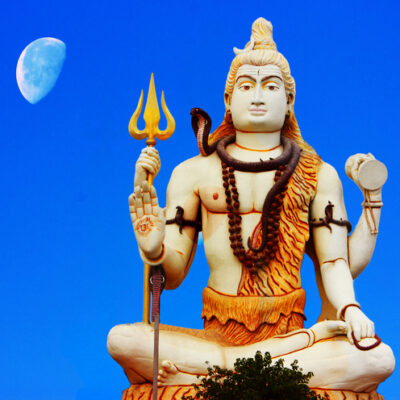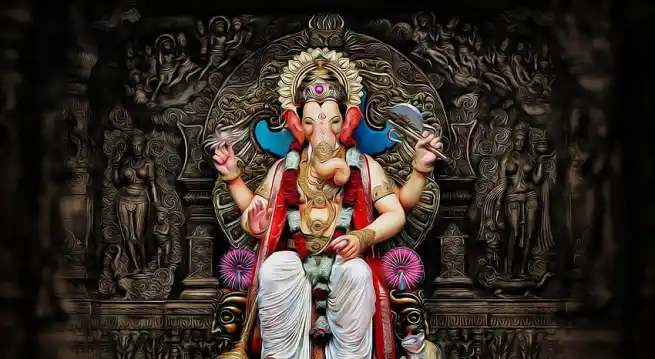Mahalaya Amavasya: Date, Timings, Rituals and Significance

Mahalaya Amavasya is a significant day in the Hindu calendar dedicated to honoring ancestors and performing rituals for their peace. It marks the culmination of the Pitru Paksha or the 15-day period devoted to Shradh and Tarpanam (ancestral offerings). This day holds great importance in paying respects to ancestors (Pitru Devatas) and seeking their blessings.
Mahalaya Amavasya 2024 Date:
- Date: Saturday, October 2, 2024
Tithi Timings for Mahalaya Amavasya 2024:
- Amavasya Tithi Begins: 5:26 PM on October 1, 2024
- Amavasya Tithi Ends: 3:52 PM on October 2, 2024
Best Timings for Rituals (Tarpanam)
- Kutup Muhurat:
- Time: 6:09 AM to 7:00 AM on October 2, 2024
- This early morning period is considered highly auspicious for offering Tarpanam and Shradh to ancestors.
- Rohina Muhurat:
- Time: 7:00 AM to 8:24 AM on October 2, 2024
- Another favorable time for conducting the rituals.
- Aparahna Kaal (Afternoon Period):
- Time: 12:02 PM to 2:28 PM on October 2, 2024
- This is also a good time to perform the Shradh and Tarpanam rituals if the morning period is missed.
Rituals to Perform on Mahalaya Amavasya
- Tarpanam (Ancestral Offerings):
- Tarpanam is the main ritual performed to express gratitude and seek the blessings of departed ancestors. It involves offering water mixed with sesame seeds, rice, and flowers to the souls of ancestors. Tarpanam is typically performed near a water body such as a river, pond, or at home using a simple setup.
- Shradh Ceremony:
- The Shradh ritual is performed by family members to honor their ancestors. It includes offering cooked rice, sesame seeds, and other items like ghee and curd to Brahmins or priests. Special dishes that were favored by the ancestors are also offered as part of the ritual.
- Pind Daan:
- Pind Daan is another important aspect of the Shradh ceremony. It involves offering rice balls (pindas) to represent the ancestors and provide them sustenance in the afterlife.
- Donation and Feeding:
- Charity is an essential part of Mahalaya Amavasya. Devotees often donate food, clothes, and money to the poor and feed Brahmins or the needy. Feeding crows is also an important ritual, as they are considered messengers of ancestors.
- Prayers and Mantras:
- Reciting the Garuda Purana or other scriptures related to ancestors is common on this day. Chanting the Maha Mrityunjaya Mantra and the Pitru Gayatri Mantra is believed to help in seeking peace for the departed souls.
- Lighting Lamps (Deepam):
- Lighting lamps in honor of ancestors is a symbolic gesture of guiding their souls to peace and enlightenment.
Significance of Mahalaya Amavasya
- Honoring Ancestors (Pitru Devatas):
- Mahalaya Amavasya is the most important day of the Pitru Paksha period. It is believed that on this day, ancestors descend to bless their descendants. Performing rituals on this day is said to ensure peace for their souls and prevent Pitru Dosha (ancestral karma).
- Liberation from Ancestor Debts (Pitru Rin):
- By observing Mahalaya Amavasya rituals, devotees seek forgiveness for their ancestors’ unfulfilled desires and unresolved issues, thereby relieving the family from Pitru Rin (ancestral debts).
- Blessings for Prosperity and Protection:
- It is believed that ancestors’ blessings bring prosperity, protection, health, and happiness to the family. Those who perform Tarpanam and Shradh receive their ancestors’ blessings for success and peace in life.
- Spiritual Elevation:
- The rituals of Mahalaya Amavasya help elevate the souls of ancestors to higher realms. This act of devotion and respect for the departed also purifies the soul of the performer and promotes spiritual growth.
- Preparation for Navaratri:
- Mahalaya Amavasya marks the beginning of Sharad Navaratri, the nine-day festival dedicated to the worship of Goddess Durga. It is considered an auspicious time to seek blessings for the upcoming festival season.
Conclusion
Mahalaya Amavasya is a day of deep spiritual significance, marked by rituals to honor and appease the souls of ancestors. Performing Shradh, Tarpanam, and charity on this day brings peace to the departed souls and blessings to the family. By observing these rituals, devotees express gratitude, seek ancestral protection, and pave the way for spiritual and material well-being.









